Did You Invest In Northstar Financial Services (Bermuda)?
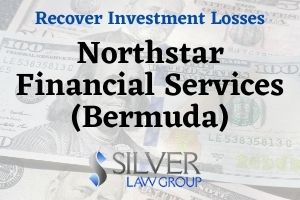 Silver Law Group is investigating possible claims related to investments in a variety of investment and insurance products offered by Northstar Financial Services (Bermuda) Ltd. Some of the investments offered by Northstar Financial Services (Bermuda) include, but are not limited to:
Silver Law Group is investigating possible claims related to investments in a variety of investment and insurance products offered by Northstar Financial Services (Bermuda) Ltd. Some of the investments offered by Northstar Financial Services (Bermuda) include, but are not limited to:
- Global Interest Accumulator
- Global Advantage Plus Series
- Global Advantage Select
- Global VIP Elite
- Global Index Product
 Securities Arbitration Lawyers Blog
Securities Arbitration Lawyers Blog


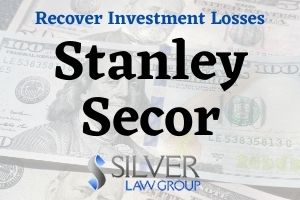 Stanley Secor (Stanley Bernard Secor CRD:#
Stanley Secor (Stanley Bernard Secor CRD:#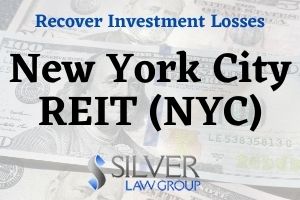 New York City REIT Inc. (NYC) has lost significant value since its public listing in August, 2020. Managed by AR Global, a partnership led by investor Nicholas Schorsch, many investors in the REIT have seen their investment decline by as much as 80%.
New York City REIT Inc. (NYC) has lost significant value since its public listing in August, 2020. Managed by AR Global, a partnership led by investor Nicholas Schorsch, many investors in the REIT have seen their investment decline by as much as 80%.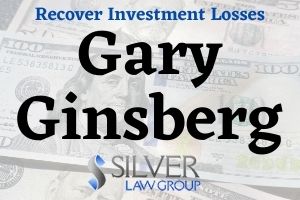 Gary Ginsberg (Gary David Ginsberg, CRD# 1175258) is a currently registered broker working for Ameriprise Financial Services (CRD# 6363) in New Jersey. Before working at Ameriprise, Ginsberg worked for
Gary Ginsberg (Gary David Ginsberg, CRD# 1175258) is a currently registered broker working for Ameriprise Financial Services (CRD# 6363) in New Jersey. Before working at Ameriprise, Ginsberg worked for  PIABA is the Public Investors Advocate Bar Association, a bar association of some of the best securities litigation lawyers in the country who represent investors in claims for investment fraud, stockbroker misconduct, and Ponzi schemes.
PIABA is the Public Investors Advocate Bar Association, a bar association of some of the best securities litigation lawyers in the country who represent investors in claims for investment fraud, stockbroker misconduct, and Ponzi schemes. “FINRA Office of Dispute Resolution” (a/k/a ODR or DR) has changed its name to “FINRA Dispute Resolution Services”. A newsletter from FINRA says the name change “highlights our focus on customer service and helps distinguish FINRA Dispute Resolution Services from FINRA Enforcement for our external stakeholders, lawmakers and the media. The name change also highlights our unique functions and speaks to our role as a neutral administrator of FINRA’s arbitration and mediation forum.”
“FINRA Office of Dispute Resolution” (a/k/a ODR or DR) has changed its name to “FINRA Dispute Resolution Services”. A newsletter from FINRA says the name change “highlights our focus on customer service and helps distinguish FINRA Dispute Resolution Services from FINRA Enforcement for our external stakeholders, lawmakers and the media. The name change also highlights our unique functions and speaks to our role as a neutral administrator of FINRA’s arbitration and mediation forum.” 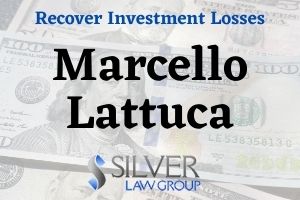 Marcello Lattuca (CRD: #
Marcello Lattuca (CRD: # The Financial Industry Regulatory Authority (“FINRA”) provides an arbitration process for investors to resolve disputes with their securities advisors. Among other things, the FINRA arbitration process helps parties avoid the expenses and waiting periods associated with filing a case in state or federal court. FINRA also writes special rules and regulations specially tailored to these investment-related disputes.
The Financial Industry Regulatory Authority (“FINRA”) provides an arbitration process for investors to resolve disputes with their securities advisors. Among other things, the FINRA arbitration process helps parties avoid the expenses and waiting periods associated with filing a case in state or federal court. FINRA also writes special rules and regulations specially tailored to these investment-related disputes.